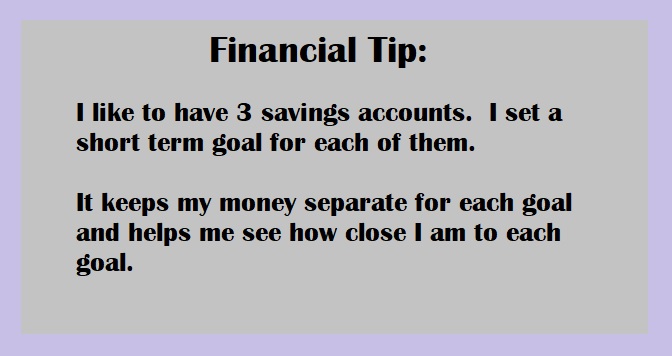How To Remove Obstacles and Achieve Your Financial Goals
Being aware of your personal financial situation will help you take advantage of good opportunities and investments when the time arises. An occasional assessment of your financial health will help you to stay out of debt and keep you from falling into a financial rut. It is important that each individual has specific financial goals examples that he or she is working towards. Without any goals you won’t know if you are moving in the right direction.
A periodic financial assessment will help you discover negative spending habits. Perhaps you are spending more than you realize on clothing or other items that are distracting you from your financial goals. We can often be surprised how much money we spend frivolously without putting much thought into it. By acknowledging these areas we can tighten up our finances and move more quickly towards our goals.
Analyzing your financial help will let you know how much money you have available for future investments and retirement. If you discover some leaky areas in your finances, take action immediately. The longer you wait the harder it will be to curb your bad spending habits. Setting goals and preparing for you financial future will pay big dividends. It will result in a more relaxed environment for yourself and your family.
Setting Short and Long Term Financial Goals |
Having financial goals examples and being organized may not sound like a lot of fun, but it will make your life much less stressful. Financial planning not just for the long term but the short term will help you find the money for family vacations, have money for date night, and other things that you can enjoy right now. It is important that you set financial goals that are short term along with the longer goals.
If you only set long term financial goals it will be easy to get burnt out. We all need to see progress in our lives to stay motivated, short term goals will help with this. It is important to reward yourself once you achieve a certain financial goal. Need an example or two? I have you covered.
A good example of a short term financial goal would be…
Goal: To have $5,000 in your savings account.
This is a solid financial goal that is set for the short term. Once you achieve this goal be sure to reward yourself for achieving it. Perhaps you always wanted to buy a guitar and learn how to play. Once you hit your financial target then go out and buy yourself a $300 guitar. This is just an example but you get the point.
If we don’t reward ourselves we will not maintain momentum and we will quickly get burnt out.
10 Financial Goals Examples – Long and Short Term
Short Term Financial Goals Examples (Less Than 1 year):
- Put $2,500 in savings
- Pay off a high interest credit card
- Increase your 401K paycheck percentage by 2 percent
- Pay off a car
- Creating an emergency fund
Long Term Financial Goals Examples (5 years or more)
- Pay off your mortgage
- Save a certain amount for retirement
- Buy an investment property
- Start a business
- Pay for college
These are just a few of the financial goals that you can set for yourself. There are an endless number of other ideas that may be perfect for you. Of course, this list is not exhaustive. Hopefully, it can get the wheels turning in your head and have you setting up your own goals quickly and easily.

Where To Start
The first step when creating a financial plan is to break down your goals into short and long term.
- Short term goals are things that can be accomplished within a year. Examples include: paying off a credit card, paying off a car loan, getting your saving balance up to $5,000. There are endless numbers of short term financial goals that you can set for yourself.
- When setting short term goals make sure there is one easy goal that you can achieve within the next 60 days. This sense of accomplishment will help you to stay focused and motivated towards achieving the other goals.
- Long term goals are ones that are 5 years or more out. This could be to pay off a mortgage, save a certain amount for retirement, or to get completely debt free if you are heavy in debt.
- Look for areas that bring in residual income such as buying investment properties. Setting goals for buying an investment property or two will help you live a more stress free life when it comes for retirement.
Know Where Your Money Goes |
More often than not, people do not have a plan for their money when they get their paycheck. This can lead to bad spending habits and can result in a mountain of debt as well. Tracking where your money goes can solve this issue.
Do an exercise for 30 days. Keep a record of every dollar that you spend. Write it on a notepad within your smartphone. Everyone keeps a smartphone with them at all times. It seems we have a hard time living without them. So make an effort to keep track of your expenses.
If you do this, I guarantee you will be surprised by a few of your spending habits. You will see where money is leaking out and you will be able to quickly correct the problems. This extra money that you find will be able to be put towards a better cause. You can now use it to achieve your first short term financial goal!
Not everyone is great with money and setting financial goals examples. However, with a little practice I know we can all have a comfortable financial future.





